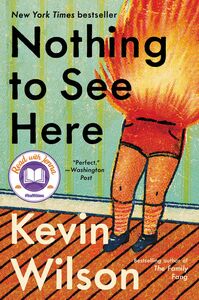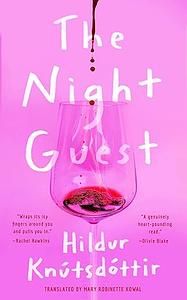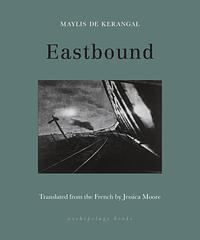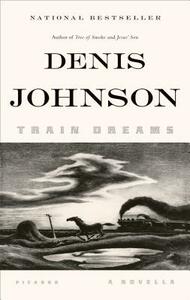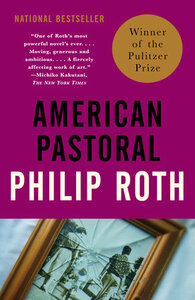You need to sign in or sign up before continuing.
Take a photo of a barcode or cover
davidaguilarrodriguez's Reviews (181)
adventurous
medium-paced
Plot or Character Driven:
Character
Strong character development:
Complicated
Loveable characters:
Complicated
Diverse cast of characters:
No
Flaws of characters a main focus:
No
Archetypal Western.
But after reading other reviews, clearly I’m not the only one who got crazy throuple vibes. I was living for that storyline and want some Shane fan-fic
Also - the movie is such a great classic Western.
I’m just going to leave out all the analysis geared toward my critiques of manifest destiny, race, and all the rest. Those are the things that give this story a low ceiling for how much I’ll ever love it. But it was decent for being what it was.
But after reading other reviews, clearly I’m not the only one who got crazy throuple vibes. I was living for that storyline and want some Shane fan-fic
Also - the movie is such a great classic Western.
I’m just going to leave out all the analysis geared toward my critiques of manifest destiny, race, and all the rest. Those are the things that give this story a low ceiling for how much I’ll ever love it. But it was decent for being what it was.
emotional
funny
lighthearted
fast-paced
Plot or Character Driven:
A mix
Strong character development:
Yes
Loveable characters:
Yes
Diverse cast of characters:
No
Flaws of characters a main focus:
Yes
I loved this book!
What a gem. Nothing to See Here is funny, tender, strange, and compulsively readable — it makes you laugh, moves you, and sneaks in some sharp social critique all at once. I knew from the first page I was in good hands: the narrator’s voice grabbed me immediately, and every time I picked the book up it felt like a joy.
What a gem. Nothing to See Here is funny, tender, strange, and compulsively readable — it makes you laugh, moves you, and sneaks in some sharp social critique all at once. I knew from the first page I was in good hands: the narrator’s voice grabbed me immediately, and every time I picked the book up it felt like a joy.
The premise — a flailing adult woman who once attended an elite boarding school on scholarship is tasked by her privileged, elite best friend to "be a governess" for her children who literally burst into flames when upset — could have gone in a dozen directions, but Wilson makes it sing. It works both as absurdist comedy and as a metaphor for the way children (and adults) internalize shame, self-worth, and the fear of being unlovable. The fire is a symbol more than a threat like say in Firestarter, handled with a light touch that keeps the book grounded in heart rather than gimmick.
Lillian, the narrator, is the star: bottled-up, hilarious, self-deprecating but sharp as hell. She has her own fire simmering inside, but without the privilege or confidence to let it blaze. Watching her bond with the combustible twins is both funny and deeply moving. Madison, meanwhile, is a perfectly drawn foil — very funny in her entitled rich bitch awfulness. The kids themselves are wonderful: vulnerable, strange, and surprisingly human despite their impossible condition.
Wilson’s prose is sharp, simple, and full of wit. Damn he's a witty writer. He can flip from quirky to tender in a single line, and the balance of humor and poignancy is masterful. The pacing never falters, and the ending lands with both satisfaction and emotional resonance.
Thematically, it hits hard on class, privilege, and self-worth, filtered through the lens of chosen family and the ways we learn to love those deemed “unmanageable.” It’s deep without being heavy, fun without being fluff.
I’ll remember Lillian’s voice most of all — funny, flawed, and unforgettable. This feels like one of the best works of recent American fiction I’ve read: generous, strange, and true. I’d recommend it to pretty much anyone.
And to top if off - this book features some of the best backyard basketball scenes in literary history. And just the fact that the main character has this passion for basketball and grew up playing it was such a nice detail. As someone who grew up playing pickup games at my friend's house whose family put a cement half-court in their backyard, I found this very relatable and accurate.
And to top if off - this book features some of the best backyard basketball scenes in literary history. And just the fact that the main character has this passion for basketball and grew up playing it was such a nice detail. As someone who grew up playing pickup games at my friend's house whose family put a cement half-court in their backyard, I found this very relatable and accurate.
funny
sad
fast-paced
Plot or Character Driven:
Character
Strong character development:
Yes
Loveable characters:
Complicated
Diverse cast of characters:
Yes
Flaws of characters a main focus:
Yes
Read for Women in Translation Month (August, 2025)
A short, funny, slightly weird book with sharp ideas about ableism and the oddity of human desire. The humor was hit-or-miss for me, but it carried a strong, distinctive voice.
A short, funny, slightly weird book with sharp ideas about ableism and the oddity of human desire. The humor was hit-or-miss for me, but it carried a strong, distinctive voice.
The narrator stood out as witty and engaging, even if the brevity kept me from attaching too deeply to any character. Style-wise, it’s spare but provocative, with humor as its strongest tool. My lasting impression is of a book I’d recommend under the right circumstances — especially if someone is looking for stories that question how we read bodies and desires.
This was my second-favorite book about a hunchback I read this year.
dark
mysterious
reflective
tense
fast-paced
Plot or Character Driven:
Character
Strong character development:
Yes
Loveable characters:
Complicated
Diverse cast of characters:
No
Flaws of characters a main focus:
No
Read for Women in Translation Month (August, 2025)
The Night Guest is a short, eerie slice of feminist horror set in Iceland, following a woman whose life of workplace drudgery and ingrained sexism starts to unravel when she realizes she’s been having increasingly bloody nocturnal “adventures.” Knútsdóttir keeps things spare but provocative, blending everyday frustrations with a creeping undercurrent of menace. The book delivers on mood — the quiet tension of missing cats, pools of blood, and unsettling office dynamics — but it never quite pushes its scares far enough. The vibe at times recalls a less overtly horror Let the Right One In but with a My Year of Rest and Relaxation–style lead character.
The Night Guest is a short, eerie slice of feminist horror set in Iceland, following a woman whose life of workplace drudgery and ingrained sexism starts to unravel when she realizes she’s been having increasingly bloody nocturnal “adventures.” Knútsdóttir keeps things spare but provocative, blending everyday frustrations with a creeping undercurrent of menace. The book delivers on mood — the quiet tension of missing cats, pools of blood, and unsettling office dynamics — but it never quite pushes its scares far enough. The vibe at times recalls a less overtly horror Let the Right One In but with a My Year of Rest and Relaxation–style lead character.
The protagonist’s simmering rage, grief over a dead sister, and complicated connection to the sister’s ex-boyfriend give the book its emotional hook, even if the reader remains slightly at arm’s length. Knútsdóttir’s prose is lean and quietly cutting, making sharp feminist critiques through everyday interactions with a chauvinist coworker and a mother steeped in internalized sexism. The final images linger, but so does the sense that the story could have gone further or deeper. Still, as a brisk, unsettling read with a distinctly Icelandic chill, it’s worth picking up if you want a feminist horror novella you can finish in an afternoon.
tense
fast-paced
Plot or Character Driven:
A mix
Strong character development:
Complicated
Loveable characters:
No
Diverse cast of characters:
No
Flaws of characters a main focus:
Complicated
The Compound is compulsively readable in the way reality TV is — quick to consume, high on drama, and low on substance. Set in a near-future, burning-earth dystopia, the novel traps contestants in a Survivor/Big Brother/Love Island-style competition where the last one standing wins. The setup is promising, and the dual pressure of in-house rivalries and a collapsing world outside creates inherent tension. But while the premise begs for sharp social commentary or deep character work, the execution mostly coasts on the page-turning premise.
Characters are the novel’s biggest weak link — the protagonist is paper-thin, and no one in the cast feels compelling enough to anchor the emotional core. The writing is simple and easy to tear through, but it rarely elevates beyond “bingeable.” There are flickers of insight, like the messy interpersonal web of betrayals (including one surprising bisexual twist), yet these moments feel like wasted opportunities in an otherwise underdeveloped sandbox. In the end, The Compound is fast entertainment with little staying power — fun in the moment, forgettable after.
hopeful
reflective
tense
medium-paced
Plot or Character Driven:
A mix
Strong character development:
Yes
Loveable characters:
Yes
Diverse cast of characters:
No
Flaws of characters a main focus:
Complicated
Read for Women in Translation Month (August, 2025)
This short, taut novel unfolds almost entirely aboard a train, where a young Russian soldier, Aliocha, deserts the army and seeks help from a stranger. As a fan of The Lady Vanishes, Strangers on a Train, and Murder on the Orient Express, I enjoyed the setup: confined space, constant motion, and high stakes. The book isn’t a pulse-pounding thriller—it’s more reflective, with as much interest in the characters’ inner landscapes as in the mechanics of the escape. The train itself is the star: a cinematic, shifting backdrop that carries us through both the vast Siberian wilderness and the intimate, tense moments between passengers.
This short, taut novel unfolds almost entirely aboard a train, where a young Russian soldier, Aliocha, deserts the army and seeks help from a stranger. As a fan of The Lady Vanishes, Strangers on a Train, and Murder on the Orient Express, I enjoyed the setup: confined space, constant motion, and high stakes. The book isn’t a pulse-pounding thriller—it’s more reflective, with as much interest in the characters’ inner landscapes as in the mechanics of the escape. The train itself is the star: a cinematic, shifting backdrop that carries us through both the vast Siberian wilderness and the intimate, tense moments between passengers.
The prose has a lyrical, almost cascading quality that elevates the story without slowing it down. Themes of freedom, self-determination, and the moral compromises of survival emerge gradually, as both the soldier and the woman helping him are escaping different forms of entrapment. The most gripping sequence comes when Aliocha hides in a bathroom and must silence a child who could betray him—a moment that distills the book’s mixture of fear, intimacy, and moral grayness. While it’s not groundbreaking, it’s elegant and balanced, a satisfying read for anyone who likes their train stories with a touch of poetry as well as suspense.
challenging
dark
informative
reflective
sad
medium-paced
I think this is my first 5 star non-fiction. This book is essential reading for all Americans. If you’re reading my review, stop and go get this book and read it now. Right now. I mean literally this moment you better not finish this sentence. GO!
Greg Grandin has written gripping narrative history — enthralling, horrifying, and impossible to put down. I was connected to certain historical figures, sad, angry, hopeful, despairing, and always riveted. It offered a fresh, devastating lens on the history of the Americas and insight into centuries of injustice.
The structure is masterful. Grandin follows key figures and moments across centuries, circling back to people and ideas to reveal the cyclical nature of history. It’s an elegant braid of biography, politics, and morality, where each thread deepens the others.
The themes are sweeping and urgent: imperialism, colonialism, revolution, the role of the U.S. in Latin America and the world at large. Grandin shows how the U.S.’s brutal experiments in the Americas served as testing grounds for strategies later unleashed globally — and domestically — by the political and economic elite.
I learned so much, especially about José Martí and Bartolomé de las Casas, alongside truly chilling portraits of American villains. Grandin balances the broad sweep of centuries with intimate detail: the writers who bore witness, the leaders who resisted, the everyday people caught in the machinery of exploitation.
His political lens is unapologetically persuasive and polemical in the best way. If you don’t feel inspired to revolution after this, I got nothing for you. He gives voice to the marginalized and suppressed, making the relevance to today’s atrocities impossible to ignore.
The final chapters hit hardest, charting the post-Roosevelt descent into the full embrace of the military-industrial complex, CIA interference, and wars against the poor. It’s epic, tragic, and enraging.
Grandin’s prose is vivid, poetic, and journalistic — history written in fire and lightning.
The entire human race should read this book, or at least every citizen in both hemispheres of the Americas.
reflective
sad
medium-paced
Plot or Character Driven:
Character
Strong character development:
Yes
Loveable characters:
Complicated
Diverse cast of characters:
No
Flaws of characters a main focus:
Complicated
A quiet, contemplative novella/long short story, Train Dreams is a meditative yet emotional piece. It’s the life of Robert Grainier — logging man, family man, eventual hermit. More of a vibe piece, but the vibes are strong.
Reading this felt like slipping into what Greil Marcus called "that old, weird America" in reference to Bob Dylan's Basement Tapes album. And in many ways this was a Dylanesque folk song, elegiac but not mournful, where personal grief and the myth of the American frontier intersect.
Johnson blends realism with a light touch of the mythic and magical — enough to give the story a dreamlike, fable quality, without tipping into full-blown surrealism. It’s a story haunted by loss, by isolation, by the slow retreat from society when you experience trauma after trauma.
Johnson blends realism with a light touch of the mythic and magical — enough to give the story a dreamlike, fable quality, without tipping into full-blown surrealism. It’s a story haunted by loss, by isolation, by the slow retreat from society when you experience trauma after trauma.
I connected with the main character Grainier — his self-recrimination, his quiet resignation — but I also saw him as a lens to understand how people drift into solitude. His life is tragic, but there’s dignity in how he carries it. He’s not railing against fate; he’s simply… living. A very human response to loss, and one I've seen firsthand in some people in my own life.
The book’s greatest strength is its imagery. The fire. The woods. The wolves. The bridge. The trains. The scenes are painted with sharp, simple strokes that leave a lasting impression. Johnson’s prose is spare but evocative — poetic yet hardscrabble, like a burned forest.
This is a good novella. Solid, moving, beautifully written. It feels like the kind of story that would shine as the closing piece in a collection, like The Dead in Joyce’s Dubliners — a meditative capstone. As a standalone book, it’s solid. A good book if you want to read something in one night.
dark
funny
reflective
tense
medium-paced
Plot or Character Driven:
Character
Strong character development:
Yes
Loveable characters:
No
Diverse cast of characters:
Complicated
Flaws of characters a main focus:
Yes
Boomer Angst: The Novel
American Pastoral is an interesting if exhausting novel — very much a product of its moment. It's a book about the collapse of American innocence, the failure of the liberal imagination, and the yawning chasm between how we think life should be and the chaos that actually ensues.
It is a novel that screams: What happened to my nice suburban life? Which, depending on your mood, can feel either tragic or tedious. I'd veer toward mostly tedious when this is the focus.
At its best, this is a story about unknowability. Roth’s narrator, Nathan Zuckerman, imagines the life of Swede Levov — a Jewish golden boy who marries a beauty queen, runs a glove factory, and believes in the promise of postwar American decency. But Zuckerman is clear: this is his imagination of Swede’s life. The story becomes a meta-narrative about storytelling itself — how we mythologize people, how we impose narratives, how we desperately try (and fail) to understand the inner lives of others.
That metafictional lens is the book’s greatest strength. It’s not the 60s radicalism or the “loss of American innocence” that lingers most — it’s Roth's interrogation of how stories fail us. Zuckerman’s projection of the Swede is as flawed as the Swede’s own projection of America.
The novel is framed by a tragic but majestically rendered 1940s Newark, a mythic portrait of Jewish assimilation and athletic glory. The Swede, seen through Zuckerman’s nostalgic gaze, is larger than life. But as we dive into his imagined adult life, the cracks show. His daughter, Merry, commits an act of domestic terrorism. His wife, Dawn, unravels. His American Dream turns nightmare. Yet even in its worst moments, Swede clings to an illusion of control.
Swede is a naive figure. He wants so badly to be a good man, to keep things “normal,” but his vision of normalcy is built on denial and repression. Roth tears him apart — sometimes with empathy, sometimes with cold disdain. Swede isn’t destroyed by the 60s, or by radicals, or by Merry’s bomb — he’s destroyed by his own refusal to confront the contradictions of his life and country.
Merry, on the other hand, is a problem. She is presented as an incomprehensible figure — a radicalized daughter who becomes an unknowable void. On a thematic level, this works in a way. But emotionally, it falls flat. Roth doesn’t seem to know how to write her, beyond symbol and symptom. His depiction of Dawn, the suburban wives, and especially of Rita Cohen — a gross male fantasy of a hippie radical — confirms that Roth’s limitations in writing women are not a feature, but a bug.
Where the book triumphs is in scenes that feel lived-in. The early Newark sections, the myth-making around the Swede’s youth, and most importantly, the final dinner party. That dinner — with its petty marital tensions, neighborly resentments, and the unforgettable Shakespearean "Fool" wisdom of Lou Levov (the Swede’s father) — is the book’s emotional crescendo. Lou crashes the bourgeois pissing contest with old-school moral clarity. It’s brilliant. The book roars back to life in that scene. Lou was by far my favorite character and he came correct with the energy to draw my interest back into a book I was getting fairly bored with.
Roth’s prose, aside from some of the content, really hit hard for me when he was interrogating stories and memory, less so when he was repeating the same ideas over and over again about American life. It's spiraling, interrogative, obsessive. His sentences don’t meander playfully like a postmodernist; they crash like waves then drill down like a Talmudic midrash. When it works, it’s exhilarating. When it doesn’t, it’s repetitive and annoying.
Thematically, the book covers a lot of ground: assimilation, Jewish identity, liberal guilt, political violence, generational fracture, storytelling itself. Some of these themes (like Jewish assimilation) are razor-sharp. Others (like the “loss of American innocence”) feel dated and obvious — like a Boomer discovering that the world is complicated for the first time.
But here’s the thing: American Pastoral came out in 1997. And what is this book, if not a pre-9/11 meditation on American stability and the intrusion of terrorism into private life? Swede’s family is the country. Merry’s bomb is the 21st century arriving early. The book doesn’t fully grasp the larger forces it’s playing with — but it feels the unease. Roth wasn’t writing about the 60s. He was writing about the 90s, about the fraying of postwar myths, about how something terrible was coming, even if no one could name it yet.
In the end, American Pastoral is both a thought-provoking novel and a frustrating one. It’s most thoughtful as a novel about the limits of empathy and storytelling than it is as a political novel. It's most enjoyable as a depiction of a world Roth knew well (40s Newark childhood, 70s suburban dinner parties like something out of the great movie by Ang Lee The Ice Storm). It’s most tedious as a novel about 60s radicalism and realizations about the shattering of certain dreams of complacency. And yet it’s most interesting as a time capsule of the creeping anxiety at the end of the 90s and the things people had on their mind at the end of the last decade of American exceptionalism.
What the hell was going on at the end of the 90s? While the reviewers of the time were so focused on this idea of "yeah this book really slaps when it comes to asking questions about the American Dream and showing that Boomer era life wasn't what was promised", the more interesting thing about it is that it wasn't an elegy for what had happened or failed to happen but a premonition of what was to become much, much worse.
What the hell was going on at the end of the 90s? While the reviewers of the time were so focused on this idea of "yeah this book really slaps when it comes to asking questions about the American Dream and showing that Boomer era life wasn't what was promised", the more interesting thing about it is that it wasn't an elegy for what had happened or failed to happen but a premonition of what was to become much, much worse.
dark
emotional
sad
medium-paced
Plot or Character Driven:
A mix
Strong character development:
Yes
Loveable characters:
Complicated
Diverse cast of characters:
No
Flaws of characters a main focus:
Yes
A Great American Novel from the underside of the American Dream...
An American Tragedy is a sweeping, morally complex, class-conscious epic that feels carved into the foundation of American literature. It belongs on the same shelf as The Great Gatsby — not as a peer across the ballroom, but as a counterpoint from across the tracks. Where Gatsby offers a glittering dream glimpsed from the margins, Dreiser turns the camera around and shows us what it’s like to live in the margins themselves — to claw for something better, to ache with longing, and to fall hard when the promise proves hollow.
This is a deeply immersive read — emotionally gripping, intellectually provocative, and morally thorny. Dreiser’s prose (sometimes dismissed as clunky or shapeless) is in fact underrated. It combines sociological observation, moral-philosophical inquiry, and passages of piercing psychological interiority. His writing feels honest, unflinching in its portrayal of society’s failures and the flawed people caught in its gears.
At the center is Clyde Griffiths, a great tragic character. I pitied him, I hated him, I understood him. He’s not a hero, he's probably a villain, but he is definitely human — and Dreiser’s achievement is in showing how a man’s character can be shaped, and ultimately broken, by the society around him. Clyde isn’t merely a murderer; he’s a product of poverty, repression, religious guilt, social aspiration, and American mythology. He dreams of wealth and status, but he lacks the means — emotionally, intellectually, morally — to reach them.
The class critique here is razor-sharp. Published just weeks before The Great Gatsby, this novel offers a perfect inversion: Gatsby lingers in the upper-class world and treats the working class as fleeting shadows; Dreiser does the opposite. We live with factory workers, street preachers, small-town girls, and social climbers yearning for something better. The world of the elite with their country clubs, parties, and society gossip in the newspapers, is glimpsed just enough to tantalize and destroy.
Sondra and Roberta form a brilliant duality. Roberta is heartbreaking, especially in the scenes leading up to and following her death — I cried in the scene when her father learns of her fate . Sondra, for her part, is no villain; she does what she must to protect herself when the truth comes out. The novel never blames the women — only Clyde, and the society that shaped him.
The murder itself
The trial, unfortunately, drags. It’s the one weak point for me — not because the material isn’t compelling, but because we’ve already lived these events with Clyde. The courtroom scenes feel more like a replay than a reckoning. A more concise final act might have elevated the ending’s power and trimmed about 100 pages.
But even with its length and occasional repetitions, the book is a masterwork. It grapples with religion, sexuality, ambition, gender roles, and the morality of a country that preaches freedom but crushes the poor. It’s a panoramic vision of American life in the early 20th century — not romanticized, but raw, honest, and achingly human.
In summary, I’d recommend this book to anyone who’s read The Great Gatsby and wants to see the same era through a different lens — one closer to the ground, where the cost of the American Dream is paid in blood.
PS now I need to check out the movie version - A Place in the Sun, starring Elizabeth Taylor and Montgomery Clift. I'd also recommend Match Point by Woody Allen, which basically lifts this plot, moves it to London, and adds a more Dostoevsky-inspired style.

